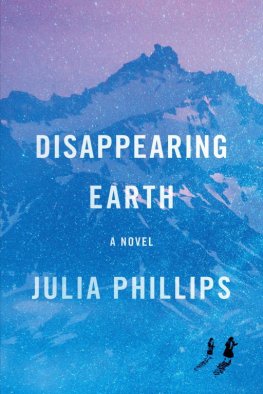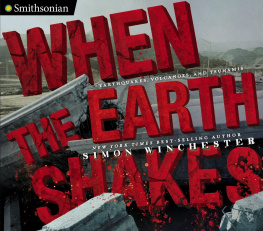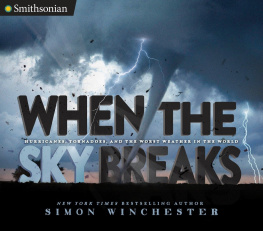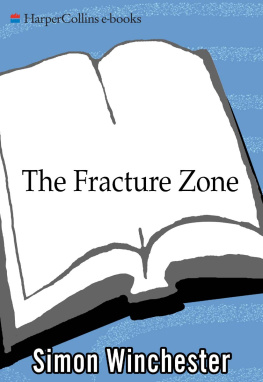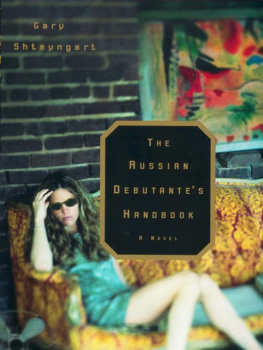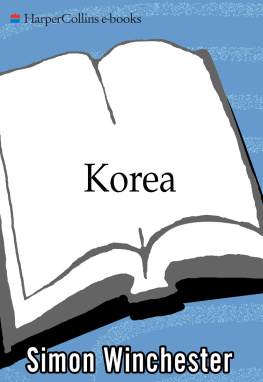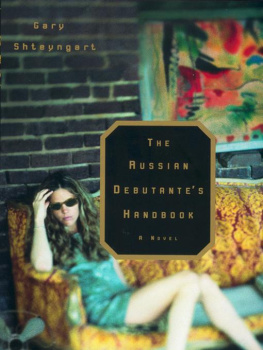Julia Phillips - Disappearing Earth
Here you can read online Julia Phillips - Disappearing Earth full text of the book (entire story) in english for free. Download pdf and epub, get meaning, cover and reviews about this ebook. City: New York, year: 2019, publisher: Alfred A. Knopf, genre: Detective and thriller. Description of the work, (preface) as well as reviews are available. Best literature library LitArk.com created for fans of good reading and offers a wide selection of genres:
Romance novel
Science fiction
Adventure
Detective
Science
History
Home and family
Prose
Art
Politics
Computer
Non-fiction
Religion
Business
Children
Humor
Choose a favorite category and find really read worthwhile books. Enjoy immersion in the world of imagination, feel the emotions of the characters or learn something new for yourself, make an fascinating discovery.
- Book:Disappearing Earth
- Author:
- Publisher:Alfred A. Knopf
- Genre:
- Year:2019
- City:New York
- ISBN:978-0-52552-041-2
- Rating:3 / 5
- Favourites:Add to favourites
- Your mark:
- 60
- 1
- 2
- 3
- 4
- 5
Disappearing Earth: summary, description and annotation
We offer to read an annotation, description, summary or preface (depends on what the author of the book "Disappearing Earth" wrote himself). If you haven't found the necessary information about the book — write in the comments, we will try to find it.
Disappearing Earth — read online for free the complete book (whole text) full work
Below is the text of the book, divided by pages. System saving the place of the last page read, allows you to conveniently read the book "Disappearing Earth" online for free, without having to search again every time where you left off. Put a bookmark, and you can go to the page where you finished reading at any time.
Font size:
Interval:
Bookmark:
Julia Phillips
DISAPPEARING EARTH
To Alex, my dar, my

PRINCIPAL CHARACTERS
Marina Alexandrovna, a journalist in the city of Petropavlovsk-Kamchatsky
Alyona, her older daughter
Sophia, her younger daughter
THE SOLODIKOV FAMILYAlla Innokentevna, head of a cultural center in the village of Esso
Natalia, called Natasha, her oldest daughter
Denis, her middle child and only son
Lilia, her youngest daughter
Revmira, her second cousin, a nurse
Lev and Yulia, called Yulka, Natashas children
THE ADUKANOV FAMILYKsenia, called Ksyusha, a university student
Sergei, called Chegga, her brother, a photographer
Ruslan, Ksyushas boyfriend
Nadezhda, called Nadia, Cheggas girlfriend
Ludmila, called Mila, Nadias daughter
THE RYAKHOVSKY FAMILYNikolai Danilovich, called Kolya, a police detective
Zoya, his wife, on maternity leave from her work at a national park
Alexandra, called Sasha, their baby
Oksana, a researcher at the volcanological institute
Maxim, called Max, a researcher at the volcanological institute
Ekaterina, called Katya, a customs officer for the citys maritime container port
Yevgeny Pavlovich Kulik, the major general of the Kamchatka police force
Anfisa, an administrative assistant for the police
Valentina Nikolaevna, an office administrator for a city elementary school
Diana, Valentina Nikolaevnas daughter
Lada, a receptionist at a city hotel
Olga, called Olya, a schoolgirl
MAP

AUGUST
Sophia, sandals off, was standing at the waters edge. The bay snuck up to swallow her toes. Gray salt water over bright skin. Dont go out any farther, Alyona said.
The water receded. Alyona could see, under her sisters feet, the pebbles breaking the curves of Sophias arches, the sweep of grit left by little waves. Sophia bent to roll up her pant legs, and her ponytail flipped over the top of her head. Her calves showed flaking streaks of blood from scratched mosquito bites. Alyona knew from the firm line of her sisters spine that Sophia was refusing to listen.
You better not, Alyona said.
Sophia stood to face the water. It was calm, barely touched by ripples that made the bay look like a sheet of hammered tin. The current got stronger as it pulled into the Pacific, leaving Russia behind for open ocean, but here it was domesticated. It belonged to them. Hands propped on narrow hips, Sophia surveyed it, the width of the bay, the mountains on the horizon, the white lights of the military installation on the opposite shore.
The gravel under the sisters was made of chips from bigger stones. Alyona leaned against a block the size of a hiking backpack, and a meter behind her was the crumbling cliff face of St. Nicholas Hill. Water on one side, rock wall on the other, they had walked along the coast this afternoon until they found this patch, free of bottles or feathers, to settle. When seagulls landed nearby, Alyona chased them away with a wave of her arm. The whole summer had been cool, drizzly, but this August afternoon was warm enough to wear short sleeves.
Sophia took a step out, and her heel went under.
Alyona sat up. Soph, I said no! Her sister backed up. A gull flew over. Why do you have to be such a brat?
Im not.
You are. You always are.
No, Sophia said, turning around. Her tipped-up eyes, thin lips, sharp jaw, even the point of her nose annoyed Alyona. At eight years old, Sophia still looked six. Alyona, three years older, was short for her age, but Sophia was tiny all over, from waist to wrists, and sometimes acted like a kindergartener: she kept a row of stuffed animals at the foot of her bed, played pretend that she was a world-famous ballerina, couldnt fall asleep at night if she caught even one scene of a horror movie on the television. Their mother indulged her. Being born second had given Sophia the privilege of staying a baby all her life.
Gaze fixed on a spot on the cliff far above Alyonas head, Sophia lifted one foot out of the water, pointed wet toes, and raised her arms to fifth position. She tipped and caught herself. Alyona shifted her seat on the stones. Their mother always tried to get Alyona to take her sister along to classmates apartments, but these little misdeeds were exactly why she would not.
Instead they had spent their summer vacation alone with each other. Alyona had taught Sophia how to do a back walkover in the damp parking lot behind their building. In July, they took the bus forty minutes to the municipal zoo, where they fed candy through the cage to a greedy black goat. Its slitted pupils swiveled in its head. Later that afternoon, Alyona pushed an unwrapped milk caramel through a chain-link fence to a lynx, which hissed at the sisters until they backed away. The caramel sat on the cement floor. So much for the zoo. When Alyona and Sophias mother left them money in the mornings before work, the sisters went to the cinema, and split a banana and chocolate crepe afterward at the caf on its second floor. Most days, though, they hung around the city, watching rain clouds gather and the sunlight stretch out. Their faces tanned gradually. They took walks, or rode their bikes, or came here.
While Sophia balanced, Alyona looked along the shore. A man was picking his way over the rocks. Someones coming, Alyona said. Her sister splashed one leg down and lifted the other. Sophia might not care who saw her act like an idiot, but Alyona, her forced companion, did. Stop, Alyona said. More loudly. Heating up in her mouthSTOP.
Sophia stopped.
Down the line of the water, the man was gone. He must have found some clean place to sit. All the frustration that had been rising inside Alyona seeped out like a bath when the drain was unplugged.
Im bored, said Sophia.
Alyona lay back. The rock was hard on her shoulders, cold on her head. Come here, she said, and Sophia stepped out of the bay, picked her way over, and squirmed next to Alyona. The smallest stones crunched together. The breeze had left Sophias body as cool as the ground. Want me to tell you a story? Alyona asked.
Yes.
Alyona checked her phone. They had to be home in time for dinner, but it wasnt even four oclock. Do you know about the town that washed away?
No. For someone who never obeyed, Sophia could be very attentive. Her chin lifted and her mouth pinched shut in concentration.
Alyona pointed down the shore at the most distant cliffs. To the girls right was the city center, from where they had walked this afternoon; to the left, marking the mouth of the bay, were those black hulks. It used to be there.
In Zavoyko?
Past Zavoyko. They sat under the peak of St. Nicholas Hill. If they had kept walking along the shoreline today, they would have seen the stony side of the hill eventually lower, exposing the stacked squares of a neighborhood overhead. Five-story Soviet apartment buildings covered in patchwork concrete. The wooden frames of collapsed houses. A mirrored high-rise, pink and yellow, with a banner advertising business space for rent. Zavoyko was kilometers past all that, making it the last district of their city, Petropavlovsk-Kamchatsky, the last bit of land before sea. It was at the edge of the cliff where the ocean meets the bay.
Font size:
Interval:
Bookmark:
Similar books «Disappearing Earth»
Look at similar books to Disappearing Earth. We have selected literature similar in name and meaning in the hope of providing readers with more options to find new, interesting, not yet read works.
Discussion, reviews of the book Disappearing Earth and just readers' own opinions. Leave your comments, write what you think about the work, its meaning or the main characters. Specify what exactly you liked and what you didn't like, and why you think so.

